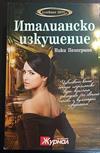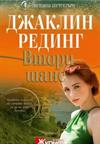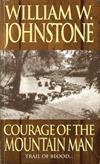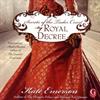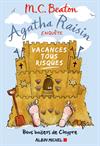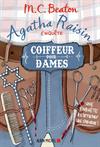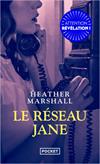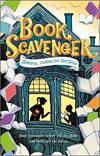Recent Book Activity
Statistics |
4 weeks | all time |
|---|---|---|
| books registered | 0 | 1 |
| released in the wild | 0 | 1 |
| controlled releases | 0 | 0 |
| releases caught | 0 | 0 |
| controlled releases caught | 0 | 0 |
| books found | 0 | 0 |
| tell-a-friend referrals | 0 | 0 |
| new member referrals | 0 | 0 |
| forum posts | 0 | 0 |
Extended Profile
Conversations with author,
Terry J Kunkel
Background:
Terry J Kunkel has led a varied life. A former marine, he’s also been a software engineer, pilot, three-time marathoner, astronomer, and environmentalist. His interests in the arts include both painting and writing. He lives in South Florida with his wife, Kris, and two extremely spoiled dogs, Tara and Isabel.
Terry J. Kunkel grew up in southwestern Wisconsin. He attended college at UW-Platteville and UM-Minneapolis. His major areas of study were business and computer science.
Terry met his wife, Kris, at a bar while waiting to pick his sister, Vicki, up from a movie. When it came time to leave to pick his sister up, Terry made a date to see Kris again. A date he didn’t keep for another four years until he happened to meet Kris at the same bar.
Kris and Terry have been married now for 20 years. They have two daughters Kim and Monique. Kim is recently married herself and student teaching in Beloit, Wisconsin, while her sister, Monique, is majoring journalism at UW-Oshkosh.
Mr. Kunkel still maintains a Renaissance man lifestyle. He runs 20 to 30 miles a week. Terry believes in maintaining a healthy lifestyle yet finds “gym work” boring but misses the exercise of his daily runs when his schedule prohibits them. He currently plans to learn Spanish and revisit his beloved French. In addition, as soon as he and his wife move to their new home, he plans to reassemble his telescope.
In 2001, Kris and Terry left Wisconsin for the “littler latitudes” of South Florida. Kris manages an American Greetings store in Pembroke Pines. Terry still consults in the technology sector while promoting his book, increasing his portfolio of paintings, and writing his next novel.
Below is a transcript of an interview taken with the author at an event for his debut novel, Is Wanting Enough?
Interview:
Q: Well, let’s start with something easy. What led you to South Florida?
A: Like Ponce de León, I came here looking for the Fountain of Youth, but found year-round road construction instead. [Pauses] Seriously though, I’ve always wanted to live near an ocean (preferably the Atlantic.) Moving to a coastal area has been one of my New Year’s resolutions now for at least 5 years.
When it finally came time to move, my wife and I had a choice between Fort Lauderdale and Boston. It was a hard choice; but here we are.
Q: According to the back copy on your book, it seems that a lot of the action in the novel takes place in Boston.
A: That’s true.
Q: Is that all you have to say on the subject?
A: I lived for a little more than a year in Boston. When I first arrived at Logan international, fully expected to loathe the city—I am after all from a small town—but I fell in love with Boston, its sights and sounds, its people, and its sense of living history. Besides, I loved taking my daily runs along the esplanade.
I had an apartment bordering the Back Bay on Comm Av, just around the corner from the Ritz. So, when it came time to choose a local for Is Wanting Enough?, Boston was a natural and conveniently already-researched location.
Q: Are there any familiar faces from your life, especially your life in Boston, on the pages in your book?
A: The story’s not autobiographical if that’s what you’re asking. However, if you’re asking, do I use people I meet as character templates? Do I somehow incorporate my experiences into the life experiences of my characters? The answer is, yes of course I do; every writer does. After all, all writers have are themselves. Everything they create has to come from within them. That’s the greatest boon and worst bane of writers.
Having only your imagination to rely upon is a boon because no other writer has had your experiences; therefore, no other writer will ever be able to tell your stories as well you can tell them. On the other hand, however, it’s also a kind of curse. No matter how hard I try, no matter how much writing talent I may or may not have, and regardless of the fact that I make regular pilgrimages down to Key West to see Ernest Hemmingway’s house, I’ll never be the writer that he was simply because I will never have his life and experiences.
Q: That remark sort of segues into my next question. Where do you get your ideas and which is more important—plotting or characterization?
A: [sighs] I’ll answer this question in two parts. First, I think anyone who has ever interviewed a writer has asked the question, “Where do you get your ideas?” and they’re all as equally astounded when they get the same answer interview after interview, and I’ll tell you the same thing, my ideas come from everywhere and everything. Everything I see, everything I hear, all my experiences go into this little notebook in my head until I need something from it. It’s as though I’m always doing research, even if I don’t know that I’m researching.
For example, during the time I was writing, Is Wanting Enough?, one day I was parked outside a movie theatre that was showing the film, Clueless, but the marquee was missing a ‘u’ so the movie title read C-L- -E-L-L-E-S. Instead of seeing a missing ‘u’, what I saw was an alien female name. I didn’t even know at that time that there’d be an alien female in my novel, yet later when I needed to name Eryn’s alter ego, C-L- -E-L-L-E-S became Cl Éless.
To answer the second part of this question—what was the second part again? Oh yeah, the chicken-or-egg or the rock-and-a-hard-place question concerning writing. I’ll tell you up front that this is a debate that we’re not going to end today for the simple reason that writers have too much fun arguing about it; so all I can do is tell you what works for me personally as a writer.
For me, characterization is the most important part of writing. Life, after all for good or bad, is about people. Before I even started the outline for Is Wanting Enough?, I’d already completed detailed biographies of all the main characters in the novel. When I say detailed, I mean on average a 10-plus-page biography. For example, Eryn’s biography was 40 pages. It included all the details of her life from when her parents first met to when the story in Is Wanting Enough? begins.
For me, plotting is merely the device I use to introduce my characters to one another and allow them to interact with each other and their environment. Take our own lives for instance, pretty much the same situation. During the course of living, you meet people, you make decisions, you commit certain acts in the pursuit of fulfilling your wants and needs. Nobody has scripted the path your life will take. I believe in free will for people and I believe in free will for my characters.
Q: Wow. At the risk of another lengthy answer, I’ll ask one more question about writing before we move on to less philosophical questions. My next question concerns your work ethic as a writer. How do you write? What I mean is how, where, and when are you at your most creative?
A: I usually write two to four hours a day. I strive for three good pages a day with weekends and holidays off for good behavior. However, rarely do I get those three good pages. That’s probably why it took me six years to write my first novel. Some days it’s more, and then some days as the Meatloaf song goes you, “…just pray to the God of Sex and Drums and Rock ‘N Roll.” Writing everyday is important to the continuity of telling the story. Besides, my characters get cranky if I neglect them for too long.
I do my best writing in morning, with a latté and music playing on the stereo. I rarely visit the library to do research relying instead on the world wide ‘wibrary.’ Therefore, a fast, high bandwidth connection to the Internet is important for me. Desk references that I use include, The Chicago Manual of Style, Essentials of English Grammar, The Columbia Guide to Standard American English, an origin of names book, a couple of dictionaries and a thesaurus.
Q: When and why did you begin writing? When did you first consider yourself a writer?
A: I’ve been writing ever since I started school. English, History, Geography, and Physics/Astronomy were my favorite subjects. I was particularly thrilled when my 7th-grade English teacher, Mrs. Brinks, made everyone in the class keep a journal where we could write about anything we wanted. I chose to write sci-fi and spy stories. They were awful. However, my first publishing experience was in the 5th grade when I wrote a story about my dog. Later on, I was finalist in a radio-play contest sponsored by a local radio station. My radio play was about an attorney in a murder trial. Move over Law and Order.
I’d say that I first thought of myself as a writer while a member of John Tigges’ writers group. The group met one Saturday every month for four years. On one such Saturday, john made the point that the very act of writing made us writers. You don’t need to be knighted a writer by some New York publishing house that’s more concerned with selling books than patronage of the arts. Is the person who paints for his or her own personal enrichment, but never has a gallery showing due to either personal choice or circumstance, any less an artist than one who is fawned over by insincere, pretentious hanger-ons at some self-congratulatory, sycophantic gallery showing? Not that I don’t like gallery showings—I’ve shown art at and attended numerous such events.
But, the event doesn’t make the artist. As a pilot, I’m fond of telling people “The plane doesn’t make the pilot but rather the pilot makes the plane.” Meaning that in the end when you strip everything away you are left with the innate human desire—no the need—to create, to add some beauty to this world, to somehow rise above that which would mire us in the mundane. In the end, as Yeats wrote, we are left with “The lonely impulse of delight.”
Q: You said that you listen to music while you write. What do you like to listen to? What kind music inspires your muse?
A: Actually my muse inspires me. That is when she hasn’t locked herself in the john. I have an eclectic collection of music, which I try to match to scene that I’m currently writing. For example , when I was writing one of the final chapters where Eryn confronts Darq Ùon, I played Don’t Fear the Reaper by Blue Oyster Cult over and over.
Q: Who or what has influenced your writing, and in what way? What books have most influenced your life?
A: I’m asked this one too and don’t really have a good answer. Obviously, as I’ve said earlier, a writer’s experiences influences their writing. I’m not sure that Robert Heinlein’s writing influenced me in any profound way but he remains the one person, living, or dead, who I wish I had a chance to meet. As far as the one book, which has had a profound effect on me, I’d have to say that it was my first-grade reader. After all, that book first opened up the miracle of the printed word to me.
As to what I read. I read a lot of romantic mainstream novels, as well as a lot of mythological-fantasy. Authors that I’ve read or am reading include Sharon Shinn, Diana Gabaldon, Greg Bear, Robert Heinlein, Dan Montague, Peter Lord-Wolff, and Michael Crichton.
Q: Okay, then since you write romances, what was the most romantic book you’ve ever read?
A: You mean besides Is Wanting Enough? [Laughs] That would be Green Mansions by W.H. Hudson. I read it in grade school during study hall. I fell in love with the Amazonian rainforest and the lyrical way Hudson described it. I suppose the delicate femininity of the fragile bird-woman, Rima, somehow caught and held my adolescent longing for some sort of ethereal unattainable love.
Q: Last question. What are you working on now?
A: Currently, I’m working on another romance novel about corporate avarice and eco-revolutionaries on a terra-formed Mars. It should be ready about this time next year.
Terry J Kunkel
Background:
Terry J Kunkel has led a varied life. A former marine, he’s also been a software engineer, pilot, three-time marathoner, astronomer, and environmentalist. His interests in the arts include both painting and writing. He lives in South Florida with his wife, Kris, and two extremely spoiled dogs, Tara and Isabel.
Terry J. Kunkel grew up in southwestern Wisconsin. He attended college at UW-Platteville and UM-Minneapolis. His major areas of study were business and computer science.
Terry met his wife, Kris, at a bar while waiting to pick his sister, Vicki, up from a movie. When it came time to leave to pick his sister up, Terry made a date to see Kris again. A date he didn’t keep for another four years until he happened to meet Kris at the same bar.
Kris and Terry have been married now for 20 years. They have two daughters Kim and Monique. Kim is recently married herself and student teaching in Beloit, Wisconsin, while her sister, Monique, is majoring journalism at UW-Oshkosh.
Mr. Kunkel still maintains a Renaissance man lifestyle. He runs 20 to 30 miles a week. Terry believes in maintaining a healthy lifestyle yet finds “gym work” boring but misses the exercise of his daily runs when his schedule prohibits them. He currently plans to learn Spanish and revisit his beloved French. In addition, as soon as he and his wife move to their new home, he plans to reassemble his telescope.
In 2001, Kris and Terry left Wisconsin for the “littler latitudes” of South Florida. Kris manages an American Greetings store in Pembroke Pines. Terry still consults in the technology sector while promoting his book, increasing his portfolio of paintings, and writing his next novel.
Below is a transcript of an interview taken with the author at an event for his debut novel, Is Wanting Enough?
Interview:
Q: Well, let’s start with something easy. What led you to South Florida?
A: Like Ponce de León, I came here looking for the Fountain of Youth, but found year-round road construction instead. [Pauses] Seriously though, I’ve always wanted to live near an ocean (preferably the Atlantic.) Moving to a coastal area has been one of my New Year’s resolutions now for at least 5 years.
When it finally came time to move, my wife and I had a choice between Fort Lauderdale and Boston. It was a hard choice; but here we are.
Q: According to the back copy on your book, it seems that a lot of the action in the novel takes place in Boston.
A: That’s true.
Q: Is that all you have to say on the subject?
A: I lived for a little more than a year in Boston. When I first arrived at Logan international, fully expected to loathe the city—I am after all from a small town—but I fell in love with Boston, its sights and sounds, its people, and its sense of living history. Besides, I loved taking my daily runs along the esplanade.
I had an apartment bordering the Back Bay on Comm Av, just around the corner from the Ritz. So, when it came time to choose a local for Is Wanting Enough?, Boston was a natural and conveniently already-researched location.
Q: Are there any familiar faces from your life, especially your life in Boston, on the pages in your book?
A: The story’s not autobiographical if that’s what you’re asking. However, if you’re asking, do I use people I meet as character templates? Do I somehow incorporate my experiences into the life experiences of my characters? The answer is, yes of course I do; every writer does. After all, all writers have are themselves. Everything they create has to come from within them. That’s the greatest boon and worst bane of writers.
Having only your imagination to rely upon is a boon because no other writer has had your experiences; therefore, no other writer will ever be able to tell your stories as well you can tell them. On the other hand, however, it’s also a kind of curse. No matter how hard I try, no matter how much writing talent I may or may not have, and regardless of the fact that I make regular pilgrimages down to Key West to see Ernest Hemmingway’s house, I’ll never be the writer that he was simply because I will never have his life and experiences.
Q: That remark sort of segues into my next question. Where do you get your ideas and which is more important—plotting or characterization?
A: [sighs] I’ll answer this question in two parts. First, I think anyone who has ever interviewed a writer has asked the question, “Where do you get your ideas?” and they’re all as equally astounded when they get the same answer interview after interview, and I’ll tell you the same thing, my ideas come from everywhere and everything. Everything I see, everything I hear, all my experiences go into this little notebook in my head until I need something from it. It’s as though I’m always doing research, even if I don’t know that I’m researching.
For example, during the time I was writing, Is Wanting Enough?, one day I was parked outside a movie theatre that was showing the film, Clueless, but the marquee was missing a ‘u’ so the movie title read C-L- -E-L-L-E-S. Instead of seeing a missing ‘u’, what I saw was an alien female name. I didn’t even know at that time that there’d be an alien female in my novel, yet later when I needed to name Eryn’s alter ego, C-L- -E-L-L-E-S became Cl Éless.
To answer the second part of this question—what was the second part again? Oh yeah, the chicken-or-egg or the rock-and-a-hard-place question concerning writing. I’ll tell you up front that this is a debate that we’re not going to end today for the simple reason that writers have too much fun arguing about it; so all I can do is tell you what works for me personally as a writer.
For me, characterization is the most important part of writing. Life, after all for good or bad, is about people. Before I even started the outline for Is Wanting Enough?, I’d already completed detailed biographies of all the main characters in the novel. When I say detailed, I mean on average a 10-plus-page biography. For example, Eryn’s biography was 40 pages. It included all the details of her life from when her parents first met to when the story in Is Wanting Enough? begins.
For me, plotting is merely the device I use to introduce my characters to one another and allow them to interact with each other and their environment. Take our own lives for instance, pretty much the same situation. During the course of living, you meet people, you make decisions, you commit certain acts in the pursuit of fulfilling your wants and needs. Nobody has scripted the path your life will take. I believe in free will for people and I believe in free will for my characters.
Q: Wow. At the risk of another lengthy answer, I’ll ask one more question about writing before we move on to less philosophical questions. My next question concerns your work ethic as a writer. How do you write? What I mean is how, where, and when are you at your most creative?
A: I usually write two to four hours a day. I strive for three good pages a day with weekends and holidays off for good behavior. However, rarely do I get those three good pages. That’s probably why it took me six years to write my first novel. Some days it’s more, and then some days as the Meatloaf song goes you, “…just pray to the God of Sex and Drums and Rock ‘N Roll.” Writing everyday is important to the continuity of telling the story. Besides, my characters get cranky if I neglect them for too long.
I do my best writing in morning, with a latté and music playing on the stereo. I rarely visit the library to do research relying instead on the world wide ‘wibrary.’ Therefore, a fast, high bandwidth connection to the Internet is important for me. Desk references that I use include, The Chicago Manual of Style, Essentials of English Grammar, The Columbia Guide to Standard American English, an origin of names book, a couple of dictionaries and a thesaurus.
Q: When and why did you begin writing? When did you first consider yourself a writer?
A: I’ve been writing ever since I started school. English, History, Geography, and Physics/Astronomy were my favorite subjects. I was particularly thrilled when my 7th-grade English teacher, Mrs. Brinks, made everyone in the class keep a journal where we could write about anything we wanted. I chose to write sci-fi and spy stories. They were awful. However, my first publishing experience was in the 5th grade when I wrote a story about my dog. Later on, I was finalist in a radio-play contest sponsored by a local radio station. My radio play was about an attorney in a murder trial. Move over Law and Order.
I’d say that I first thought of myself as a writer while a member of John Tigges’ writers group. The group met one Saturday every month for four years. On one such Saturday, john made the point that the very act of writing made us writers. You don’t need to be knighted a writer by some New York publishing house that’s more concerned with selling books than patronage of the arts. Is the person who paints for his or her own personal enrichment, but never has a gallery showing due to either personal choice or circumstance, any less an artist than one who is fawned over by insincere, pretentious hanger-ons at some self-congratulatory, sycophantic gallery showing? Not that I don’t like gallery showings—I’ve shown art at and attended numerous such events.
But, the event doesn’t make the artist. As a pilot, I’m fond of telling people “The plane doesn’t make the pilot but rather the pilot makes the plane.” Meaning that in the end when you strip everything away you are left with the innate human desire—no the need—to create, to add some beauty to this world, to somehow rise above that which would mire us in the mundane. In the end, as Yeats wrote, we are left with “The lonely impulse of delight.”
Q: You said that you listen to music while you write. What do you like to listen to? What kind music inspires your muse?
A: Actually my muse inspires me. That is when she hasn’t locked herself in the john. I have an eclectic collection of music, which I try to match to scene that I’m currently writing. For example , when I was writing one of the final chapters where Eryn confronts Darq Ùon, I played Don’t Fear the Reaper by Blue Oyster Cult over and over.
Q: Who or what has influenced your writing, and in what way? What books have most influenced your life?
A: I’m asked this one too and don’t really have a good answer. Obviously, as I’ve said earlier, a writer’s experiences influences their writing. I’m not sure that Robert Heinlein’s writing influenced me in any profound way but he remains the one person, living, or dead, who I wish I had a chance to meet. As far as the one book, which has had a profound effect on me, I’d have to say that it was my first-grade reader. After all, that book first opened up the miracle of the printed word to me.
As to what I read. I read a lot of romantic mainstream novels, as well as a lot of mythological-fantasy. Authors that I’ve read or am reading include Sharon Shinn, Diana Gabaldon, Greg Bear, Robert Heinlein, Dan Montague, Peter Lord-Wolff, and Michael Crichton.
Q: Okay, then since you write romances, what was the most romantic book you’ve ever read?
A: You mean besides Is Wanting Enough? [Laughs] That would be Green Mansions by W.H. Hudson. I read it in grade school during study hall. I fell in love with the Amazonian rainforest and the lyrical way Hudson described it. I suppose the delicate femininity of the fragile bird-woman, Rima, somehow caught and held my adolescent longing for some sort of ethereal unattainable love.
Q: Last question. What are you working on now?
A: Currently, I’m working on another romance novel about corporate avarice and eco-revolutionaries on a terra-formed Mars. It should be ready about this time next year.



